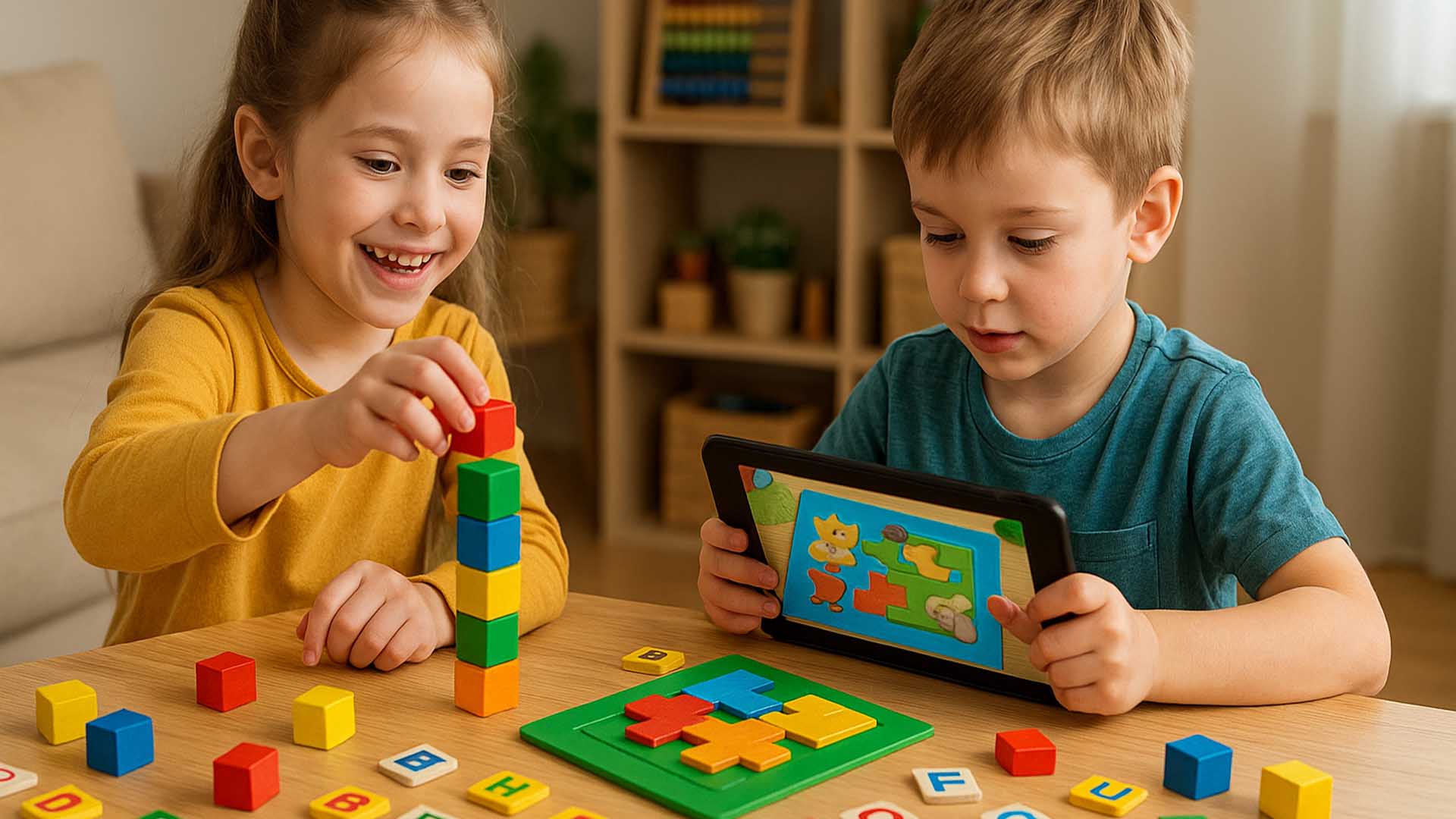In an age where screens are ubiquitous, educational games offer a unique opportunity to blend entertainment with learning. These games, whether digital or physical, are designed to teach children valuable skills and concepts in an engaging and interactive way. From boosting problem-solving abilities to enhancing creativity and critical thinking, educational games can transform learning into an exciting adventure. This article explores the benefits of educational games for children and highlights some popular options that make learning fun.
The Power of Play-Based Learning
Children learn best when they are actively engaged and having fun. Educational games leverage the power of play to introduce new ideas, reinforce concepts, and develop essential skills. Unlike traditional rote learning, play-based learning allows children to experiment, make mistakes, and discover solutions in a low-pressure environment. This approach fosters a love for learning, encourages curiosity, and helps children develop a deeper understanding of subjects. Whether it\”s a board game that teaches math or a digital app that builds literacy, the playful context makes learning enjoyable and effective.
Cognitive and Social Benefits
Educational games offer a wide range of cognitive benefits. Many games require strategic thinking, problem-solving, and decision-making, which help children develop their analytical skills. Games that involve puzzles or memory challenges can improve cognitive functions like attention, concentration, and recall. Beyond cognitive development, educational games also provide significant social benefits. Multiplayer games encourage teamwork, communication, and negotiation. Children learn to take turns, share, and resolve conflicts, all while interacting with peers or family members. These social interactions are crucial for developing empathy and building strong interpersonal skills.
Digital vs. Physical Educational Games
Educational games come in various formats, each with its own advantages. Digital educational games, often found as apps or online platforms, can offer interactive experiences, personalized learning paths, and immediate feedback. They can adapt to a child\”s learning pace and provide a dynamic environment for exploration. Examples include coding games that teach programming logic or language apps that introduce new vocabulary. On the other hand, physical educational games, such as board games, card games, and building sets, promote hands-on learning and tactile engagement. They often encourage face-to-face interaction, which is vital for social development, and can be played without screen time. Both types of games have their place in a child\”s learning journey, and a balanced approach can maximize their benefits.
Choosing the Right Educational Games
When selecting educational games, it\”s important to consider your child\”s age, interests, and learning goals. Look for games that are age-appropriate, challenging but not frustrating, and aligned with educational objectives. Reading reviews and trying out demos can help you make informed choices. The key is to find games that genuinely engage your child and make learning an enjoyable experience, rather than a chore. By integrating educational games into their routine, parents can help their children develop a lifelong love for learning and equip them with the skills they need to succeed.
Q&A
Q1: How do educational games help with problem-solving skills?
A1: Many educational games present challenges or puzzles that require children to think critically, analyze situations, and devise strategies to find solutions. This process helps them develop logical reasoning and problem-solving abilities.
Q2: Are there educational games that can help with reading and writing?
A2: Yes, there are many educational games designed to improve literacy skills. These can include games that focus on phonics, vocabulary building, spelling, and even creative writing prompts. Look for apps or board games specifically aimed at these areas.
Q3: How can I ensure my child doesn\”t spend too much time on digital educational games?
A3: Set clear time limits for digital game play and encourage a balance with other activities like outdoor play, reading physical books, and creative arts. Parental control settings on devices can also help manage screen time. Focus on the quality of the game and its educational value rather than just the duration of play.
Sources
[1] PCMag. (n.d.). The Best Video Games for Kids. https://www.pcmag.com/picks/the-best-video-games-for-kids
[2] Nurturing Brilliant Minds. (2025). My Top 10 Games For Kids (2025). https://nurturingbrilliantminds.com/top-10-games-for-kids/








0 Comments